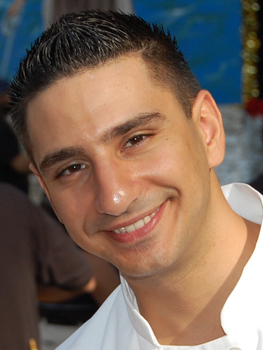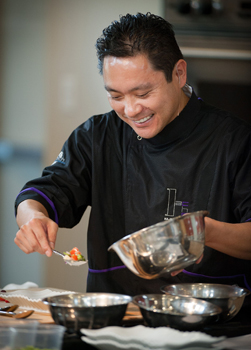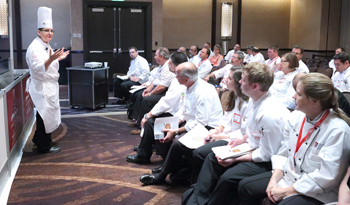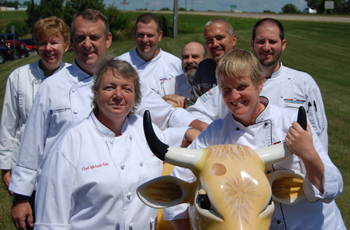 Marco Chirico, at only 25, is already moving a legacy into the next generation via his father’s restaurants—one operating for three decades and one a few years young—in Brooklyn.
Marco Chirico, at only 25, is already moving a legacy into the next generation via his father’s restaurants—one operating for three decades and one a few years young—in Brooklyn.
By Lynn Schwartz
When a parent receives public recognition in a career, the children might prefer to run in the opposite direction, deliberately choosing a different livelihood. Then there are those offspring who desire to follow in the impressive family footsteps. With that decision is an inherited responsibility; there is a pressure to measure up.
Marco Chirico has chosen the latter path. At only 25, he is taking over Marco Polo Ristorante, his father’s legendary Italian restaurant in Carroll Gardens, Brooklyn—a restaurant that has just celebrated its 30-year anniversary.
Accepting the reins requires a delicate balancing act. Chirico must maintain the quality, integrity and longevity of the famed family business, but also carefully and respectfully guide the restaurant into the future for the next generation.
Filling Some Very Big Shoes
Chirico grew up in the middle of a lively business where the whole family was involved. Chirico’s father, Joseph, immigrated to New York from San Martino, Italy, in 1964. He began with a luncheonette, serving Italian sandwiches, and in 1983 opened Marco Polo Ristorante, named for the Venetian explorer.
Joseph Chirico became recognized as a pioneer, introducing both fine Italian dining to Brooklyn and serving unfamiliar ingredients such as bufala mozzarella imported from Italy, porcini mushrooms and truffles. He also became the owner and operator of the historic Gage and Tollner on Fulton Street in downtown Brooklyn.
There was no expectation for Joseph’s son to make a career in the hospitality industry. “I was bussing tables since I was 12 years old,” says Marco Chirico. “We all worked there. My sisters were hostesses, but there was never any pressure for me to be in the business. I just liked it. I liked the customers and my father saw that.”

 Marco Chirico, at only 25, is already moving a legacy into the next generation via his father’s restaurants—one operating for three decades and one a few years young—in Brooklyn.
Marco Chirico, at only 25, is already moving a legacy into the next generation via his father’s restaurants—one operating for three decades and one a few years young—in Brooklyn. “Gold Medal Classroom” readers who answer a survey (see link below) will receive a special code for a $200 discount on Worlds of Flavor® 2013 registration. Also, all names will be placed into a drawing for one free Worlds of Flavor registration, and three respondents will receive a choice of one of three CIA books.
“Gold Medal Classroom” readers who answer a survey (see link below) will receive a special code for a $200 discount on Worlds of Flavor® 2013 registration. Also, all names will be placed into a drawing for one free Worlds of Flavor registration, and three respondents will receive a choice of one of three CIA books. As the American Culinary Federation’s 2013 National Chef Educator of the Year learned from her fourth-grade teacher, to achieve success in the classroom, a good instructor must be able to recognize the learning styles of his or her students and adjust his or her teaching style accordingly. Because every student deserves a Miss Farber.
As the American Culinary Federation’s 2013 National Chef Educator of the Year learned from her fourth-grade teacher, to achieve success in the classroom, a good instructor must be able to recognize the learning styles of his or her students and adjust his or her teaching style accordingly. Because every student deserves a Miss Farber. Culinary instructors from across the nation recently participated in Emmi Roth USA culinary-externship program and American Cheese Society conference events.
Culinary instructors from across the nation recently participated in Emmi Roth USA culinary-externship program and American Cheese Society conference events.